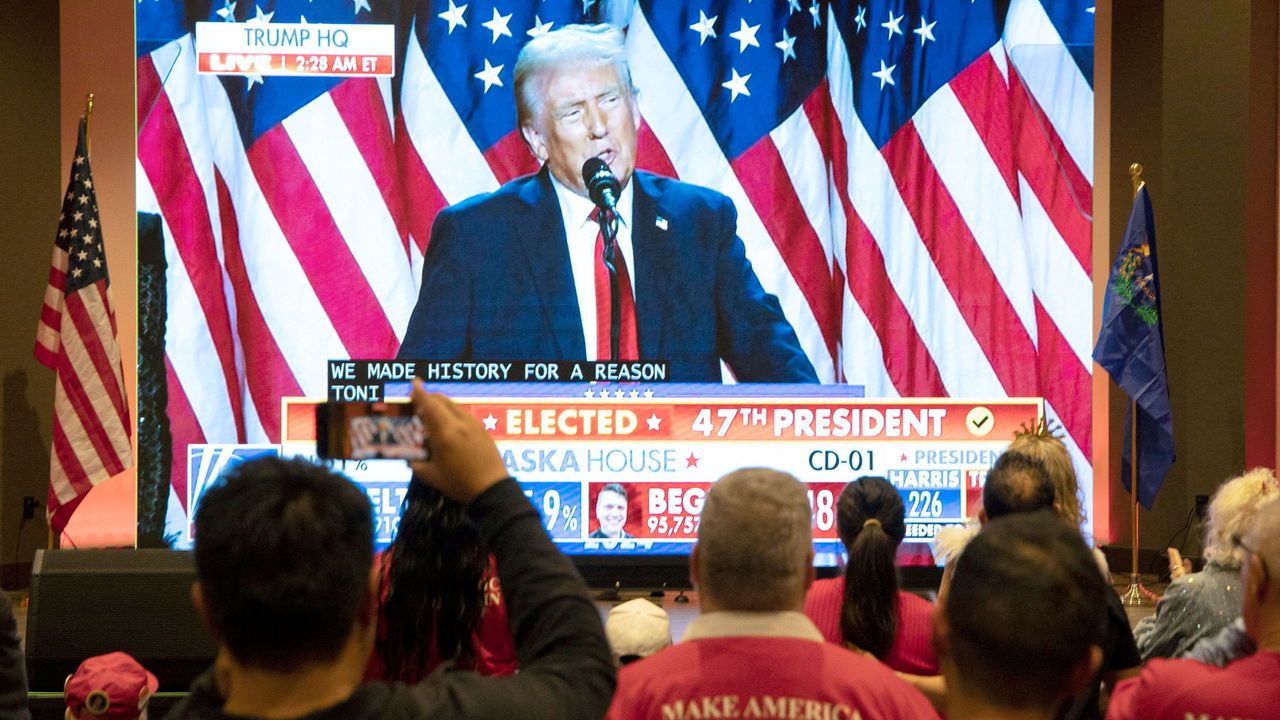- by
- 01 9, 2025
-

-
-
Loading

Loading

AUSHEAD OF AMERICA’S elections on November 5th the that the races for the presidency and Congress would be so close that the results might not be known for days. But by the morning of November 6th Donald Trump and his party had secured a . Republicans began to dream of the holy grail of American politics: winning the “trifecta” of presidency, Senate and House of Representatives. What kind of power would that give the party and the president?The president enforces the law and can propose laws; Congress makes the law. When a president faces a House or Senate controlled by the other party, the bills he wishes to pass are more likely to be voted down. That forces the president either to compromise or to rely on executive orders—in essence presidential decrees—that can be easily reversed by his successor. In principle a trifecta enables a party to pass laws without needing to negotiate with the other side. But there are some limits, and the advantage diminishes when the president is at odds with his party’s representatives in Congress or when they quarrel with each other. are fairly common. When the president-elect is not the incumbent his party often wins both houses of Congress, too—this is known as the “coat-tail effect”. Since 1901 16 of the 21 presidents who entered office did so with both houses on their side (see chart). Democrats won a trifecta in 1932 that lasted for 14 years. That allowed President Franklin Roosevelt to pass the New Deal, which created Social Security, unemployment insurance and a large number of public-works projects. It helped pull America out of the Great Depression. But more recently trifectas have been shorter. Bill Clinton, Barack Obama, Mr Trump and Joe Biden all came into office with one, only to lose it in midterm elections two years later.The ability to pass laws largely unimpeded is especially handy when the party in control plans to make big changes. That is certainly true of Mr Trump and the Republicans. The president-elect has promised the largest deportation of migrants in American history, and says he will slash taxes, dismantle his predecessor’s energy and environmental policies and impose high tariffs on imports. Not all of this necessarily requires new laws, but passing some would make the moves more durable and resilient to legal challenges.Even a trifecta does not guarantee that a party will pass substantial legislation. Indeed, the Pew Research Centre reckons that four of the five most productive Congresses since 1989 have been divided. Republicans had a trifecta for the first two years of Mr Trump’s first term, but divisions within the party meant that they failed to repeal the Affordable Care Act (commonly known as Obamacare), a long-stated aim. And this time Republicans have as yet secured 52 seats in the Senate. That is eight short of the number needed to override a —a manoeuvre that prevents debate on many bills from passing to a vote, and something Democrats will be tempted to use.Since Mr Trump’s first term his control of the Republican Party has become more complete. And much of the judiciary, which should act as a check to the executive and legislature, will also be sympathetic to his agenda: he appointed three of the nine Supreme Court justices, and more than 230 circuit and district-court judges (though Mr Biden is not far off that number). He should have little trouble confirming many more in his second term: the Republican-controlled Senate is responsible for scrutinising presidential nominees for federal judgeships. As the two parties wait to see who will control the House, Republicans are filled with hope. And Democrats with foreboding.